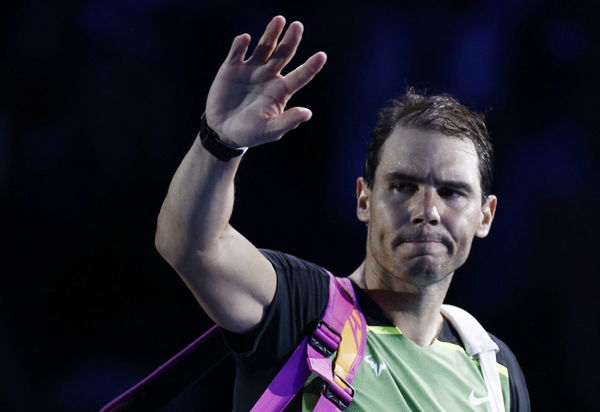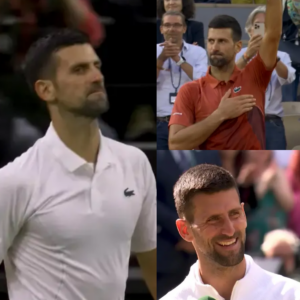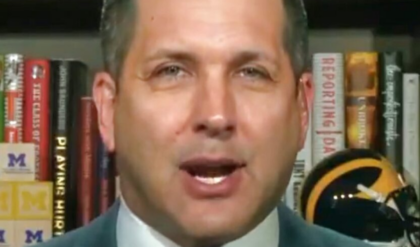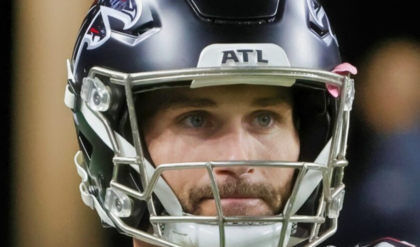

In a recent essay titled, ‘The Gift’ for The Player’s Tribune, Rafael Nadal spoke about some of the pivotal moments in his life and tennis career. Interestingly, while taking a look back at his illustrious career, Rafael Nadal also revealed the hurdles that he had to overcome to reach where he is today. He said, “For 30 years, the image I projected to the world wasn’t always what I felt inside. Honestly, I have always been nervous before every match I’ve played, that never goes away. Every night before a match, I would go to bed feeling like I could lose (and also when I woke up in the morning!).“
Nadal has faced quite a few injuries in his tennis career and perhaps without it, we could’ve seen him winning more titles in the last decade. However, physical struggles weren’t his only concern! Speaking more about that topic, Rafael Nadal wrote, “For most of my career, I was good at controlling those emotions… with one exception. I went through a very difficult time, mentally, a few years ago. Physical pain I was very used to, but there were times on the court when I had trouble controlling my breathing, and I couldn’t play at the highest level.”
He further added, “I have no problem admitting it now. After all, we are humans, not superheroes. The person you see on the center court with a trophy is a person. Exhausted, relieved, happy, grateful — just a person. Thankfully, I didn’t reach the point of not being able to control things like anxiety, but there are moments with every player where it’s hard to control the mind, and when that happens, it’s hard to have total control of your game. There were months when I thought about taking a complete break from tennis to cleanse my mind.“
How did he overcome all of these though? “In the end, I worked on it every day to get better. I conquered it by always moving forward, and slowly I became myself again. The thing that I’m most proud of is that I may have struggled, but I never quit. I always gave the maximum,” said the 22-time Grand Slam champion.

During a previous interview with The Objective, Rafael Nadal revealed that he had been to the psychologist twice at different stages of his life to deal with various issues. What does Nadal think about the importance of opening up on mental health struggles?
In February, during that interview with The Objective, Rafael Nadal said, “If you have pain in your leg, go to the doctor. Maybe it was a more taboo topic, but I don’t perceive it that way, I perceive it as something normal and natural, it’s just another part of the body and I would say the most important. I never had a problem talking about it, I went to a psychologist twice in my life, in two different phases of my life for two different problems I had.”
He even advised people who are suffering from these problems to seek help no matter how big or small the issues they may be suffering from. Nadal explained, “If they can receive help and it helps them be happier, they are welcome.” He believes mental health problems are like any other normal disease, for which people need to visit doctors. According to him, the most important thing in life is to be happy more than anything else.
In his long note for The Players’ Tribune, Rafael Nadal also mentioned how his father, Sebastian helped him endure one of the most difficult periods of his life. This was more of a physical struggle though! Once there was a time when Nadal’s career looked in some real threat! At just 17 years old, he developed a chronic degenerative condition in his left foot called Mueller-Weiss syndrome. Do you know he was even warned at that time that he would likely never play professional tennis again in his life?
News
Novak Djokovic experiences his first sub-top-250 defeat since 2010!
Numbers do not always give the correct information! We saw that on Friday at the Brisbane International when world no. 293 Reilly Opelka stunned the 24-time Major winner, Novak Djokovic. Reilly ousted his idol 7-6, 6-3 in an hour and…
‘Novak Djokovic will challenge Sinner, Zverev, Alcaraz,’ says Musetti
After many notable years at Majors, Novak Djokovic did not lift a notable trophy in 2024. The 24-time Major champion is alone at the top, leaving Rafael Nadal at 22 following a stellar performance in 2023. Despite that, Djokovic is…
Novak Djokovic tips his hat to Reilly Opelka after Brisbane defeat
Novak Djokovic kicked off the new season at the ATP 250 event in Brisbane. The Serb competed at this event for the first time since 2009 and failed to chase the milestone 100th ATP title. Novak suffered a 7-6, 6-3…
Novak Djokovic And Mother Jelena’s Reaction Was Surprising.
Novak Djokovic, the Serbian tennis superstar, is a name that resonates worldwide, not only for his incredible achievements on the court but also for his remarkable persona off it. Djokovic has long been an open book about his personal life,…
“WHAT I NEED MOST NOW IS REST” Djokovic Suddenly Made A Shocking Statement At The End Of His Career.
Novak Djokovic, one of the greatest tennis players of all time, recently made headlines with a startling admission regarding his future in the sport. As he nears the end of an illustrious career that has seen him secure numerous Grand…
Nadal Breaks Down in Tears as His Wife and Son Visit Him on His Final Tour: ‘He Missed His Father’.Details In The Comments 👇👇
In the world of professional sports, moments of pure emotion often surface, revealing the human side of athletes who are usually seen as invincible figures. One such touching moment came recently involving tennis legend Rafael Nadal. Known for his relentless…
End of content
No more pages to load











